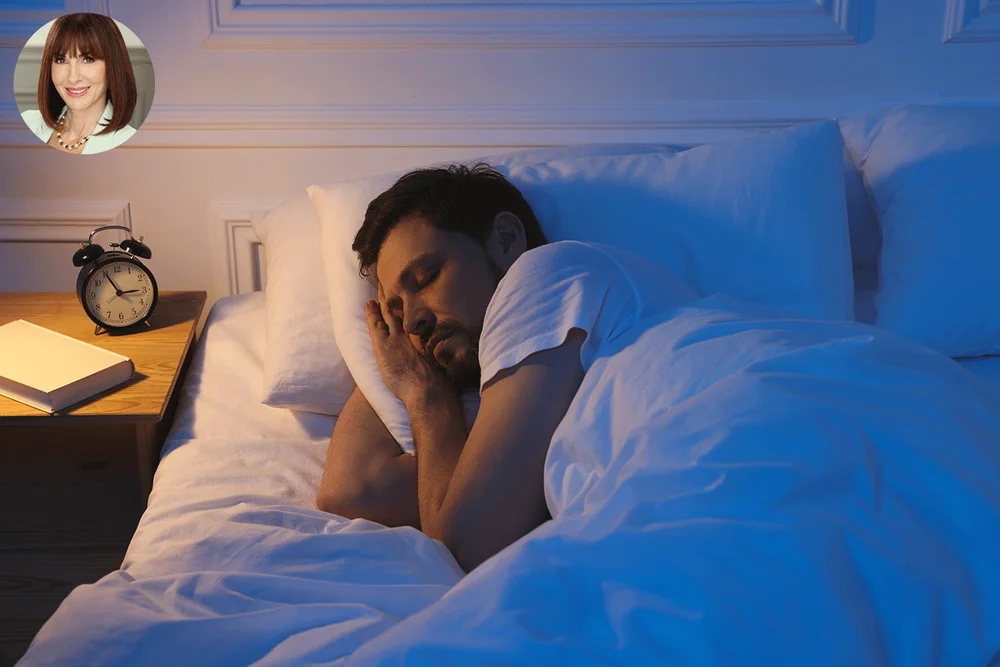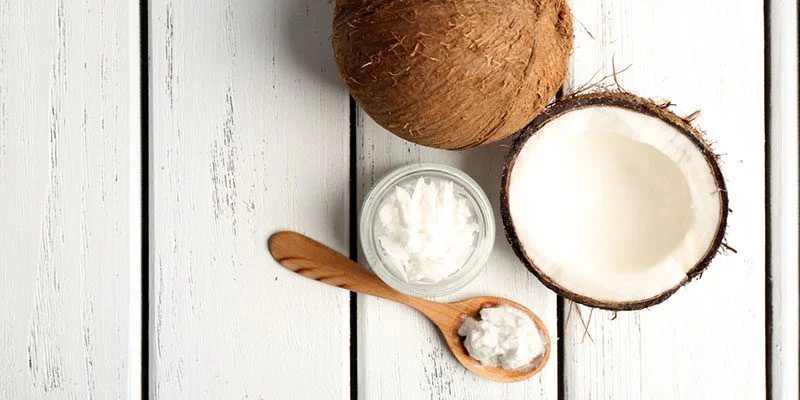The Importance of Sleep Hygiene: Creating a Restful Nighttime Routine
Years ago, when my thyroid condition led to insomnia, I found out firsthand how frustrating it can be when we’re deprived of a key necessity for optimal health: sleep. That’s when I made it my mission to create the ideal sleep routine.
And I know I wasn’t alone in my struggle. I hear from so many people who have a hard time falling asleep or staying asleep. That’s not surprising, given how many aspects of our modern society, from mobile devices and artificial lighting to mega-doses of caffeine, stimulate the senses and interfere with slumber.
In addition, many people simply don’t monitor their sleep hygiene as closely as other aspects of their hygiene—but they should. Let’s look at why sleep hygiene is worth prioritizing and explore my top suggestions to make your nighttime rest more restorative than ever.
Why Is Sleep So Important?
We all know I’m a stickler for diet and exercise—both of which, of course, promote better sleep. But making sure you get enough quality rest every night is just as important as loading up on nutrient-rich foods or moving your body. That’s because sleep is a must for brain health. It improves your memory, learning, and behavior, while helping prevent mild cognitive impairment, Alzheimer’s disease, and other forms of dementia. So, if you get inadequate sleep, you’re more likely to experience negative effects on cognitive function and memory, as well as increased risks for chronic disease.
Here are some additional ways sleep impacts your health:
- Improving your sleep promotes a positive mood. Many studies have examined the link between lack of sleep and mental health disorders, such as anxiety and depression. And we all know that after just 1 night of poor sleep, it’s easier to feel stressed out, short-tempered, and fatigued.
- Sleep impacts brain health, energy levels, and even weight control. Without enough rest, risks for being obese and overweight increase since sleep deprivation can destabilize important hormones in the body. Lack of sleep lowers leptin, the hormone that signals you to stop eating when you’re full. Meanwhile, it raises levels of ghrelin, which encourages appetite, and orexin, a neurotransmitter that boosts food cravings.
- Not getting enough sleep interrupts healthy glucose metabolism, which means your body becomes more resistant to insulin. Over time, these interruptions can increase risk for type 2 diabetes.
- Lack of sleep is linked to high blood pressure, heart attacks, and increased risk of car accidents, depression, and substance abuse. Sleep-deprived people are more likely to make poor decisions, including what they choose to eat and whether to exercise.
Foods to Eat and Avoid for Better Sleep
You might be surprised to know that certain foods can impact your sleep—for better or worse. Here are some foods to avoid if you’re having trouble sleeping at night:
- Tomatoes and tomato sauce contain an amino acid called tyramine, which promotes stimulating norepinephrine secretions in the brain.
- Celery, thanks to its high water content and natural diuretic effects, may trigger middle-of-the-night bathroom visits.
- Peppermint may stimulate various brain regions and promote more alertness. Try drinking peppermint tea to start your day rather than near bedtime.
- Chili peppers can raise body temperature, interfering with sleep.
So, what foods should you add to your menu to best support slumber? Fortunately, they’re foods already listed in my book The Omni Diet. Reach for fish, nuts, and seeds, which are rich in selenium. Try tuna, cod, sardines, salmon, scallops, Brazil nuts, and sunflower or mustard seeds. Add in leafy greens like kale, spinach, and Romaine lettuce, as well as peas, zucchini, broccoli, and Brussels sprouts, which contain the sleep-promoting antioxidants lutein and zeaxanthin.
Get your vitamin C through raw, organic produce—great sources are citrus fruits, cantaloupe, pomegranates, red and green peppers, and berries. Obtain serotonin-boosting tryptophan through animal proteins like shrimp and turkey. Tryptophan is also present in bananas, which have the added bonus of relaxing magnesium and compounds that promote melatonin production.
In terms of beverages, the most important step you can take is ditching alcohol before bed (or anytime of the day). Many people believe that drinking induces sleep, but it’s actually a known sleep destroyer. It blocks REM sleep (the most restorative type), so you wake up feeling groggy and unfocused—in addition to the “hangxiety” that many experience the day after drinking. Swap out your glass of wine for a cup of chamomile tea, which helps ease anxiety and soothes nerves before bedtime.
My Nighttime Routine for Better Sleep
After a lot of experimentation, I’ve created a sleep routine that is super-effective for giving me the quality rest I require to keep me functioning at my best. Here are some of my top suggestions for keeping your sleep on track:
1. Stick to a Schedule
Going to sleep and waking up at the same time every day will help your body establish a regular circadian rhythm. Avoid naps and maintain your schedule even on weekends.
2. Support Your Sleep with Supplements
I use time-release melatonin, valerian root, and magnesium before bed to help me sleep. Others find success with 5HTP, GABA, and inositol. BrainMD’s Restful Sleep conveniently includes GABA, melatonin, and other important nutrients, while Magnesium Chewables are also great for promoting better sleep.
3. Create a Pre-sleep Routine
Turn off all your electronics at least 1 hour before bedtime. Rather than scrolling, “power down” by reading a non-stimulating or inspirational book. Or write in your journal, which can help expel some of the anxieties that keep you awake. You could also listen to soothing music, or do a prayer or meditation.
4. Incorporate Calming Extras
I love a hot bath 30 minutes before bedtime, especially one that’s infused with calming lavender oil. A soothing drink also helps me decompress. I enjoy chamomile tea, or a warm almond milk drink I make with 1 teaspoon of honey, 1 teaspoon of cocoa powder, and a few drops of chocolate-flavored stevia.
5. Create a Quiet, Dark, Cool Environment
A white noise machine can help your brain drift off to rest and prevent other sounds from waking you. (You can achieve the same effect with a fan or soft music.) Outfit your windows with blackout shades and wear an eye mask so you’re not disturbed by light. Avoid lighted clocks and other devices in the bedroom. And set the thermostat to 60.8 to 65 degrees Fahrenheit.
Pinpointing Your Sleep Problems
If you struggle with sleep, it’s a good idea to start implementing the tips above and track any changes. But you’ll also want to better understand what’s causing your sleep issues in the first place. Ask yourself the following questions:
- Do I have any symptoms of sleep apnea?
- How much caffeine and/or alcohol am I consuming, and at what times of the day?
- What medications, medical conditions, and/or supplements may be compromising my sleep?
- Is my bedroom setup sleep-promoting or sleep-disturbing?
- Am I allowing myself enough sleep, and at consistent times?
- Are my hormones out of balance? (This is a key factor for women, especially during pregnancy and menopause.)
If any of these may be interfering with your sleep, talk to your doctor, monitor your daily habits, and adjust your routines as needed.
Better Sleep, Better Health
Even years later, I still remember struggling with sleep and how devastating it was—not only to me, but my loved ones. That’s why I consider sleep a cornerstone of my self-care, which means it takes a high priority.
With sleep affecting so many aspects of our lives, getting adequate rest is one of the most important steps we can take to improve our health and our longevity. Using the right nighttime routine and other lifestyle choices, you’ll be on your way to a better night’s sleep and wake up feeling refreshed, ready to tackle your day.
- Screen Time and Brain Health: Setting Healthy Limits for Children - April 16, 2024
- Raising Brain-Healthy Kids: Tips for Parents to Support Cognitive Development - April 11, 2024
- Healing from Trauma: Empowering Stories of Resilience and Recovery - April 5, 2024



